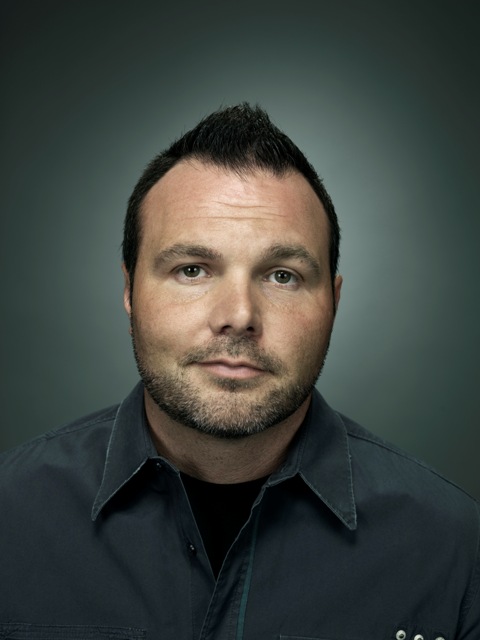Citing Luke 9:46-48, Mark Driscoll, pastor of Mars Hill Church in Seattle, recounts the story where Jesus, confronting the disciples and their debate about which one is the greatest, pulls a child beside himself.
"Whoever welcomes this little child in my name welcomes me," he says, "and whoever welcomes me welcomes the one who sent me. For he who is least among you all -- he is the greatest."
 Driscoll, who is in the middle of a sermon called "Redeeming Greatness" (August 15, 2010, transcript, video, also embedded below) is explaining that followers of Jesus need to be humble.
Driscoll, who is in the middle of a sermon called "Redeeming Greatness" (August 15, 2010, transcript, video, also embedded below) is explaining that followers of Jesus need to be humble.
In what has become a familiar rant of Driscoll's, Facebook, Myspace, Twitter and a variety of other social media (and celebrities, or "narcissists," Britney Spears, Marilyn Monroe, John Belushi, Chris Farley, Elvis, Kurt Cobain, Layne Staley. Lindsay Lohan, Robert Downey Jr., Paris Hilton, Pamela Anderson, etc.) are cited as being anti-Jesus and even demonic. (Yes, Driscoll believes in the literal sort of demons.)
If Driscoll's criticism of Narcissus (anyone else note that the image he uses in his presentation is Caravaggio's painting from the Wikipedia page for Narcissus, or that he mispronounces "Narcissus" as "Narsus"?) is noble -- and it's easy to agree that altruism is a goal to pursue -- his approach to arguing his point is disgraceful.
Trying to set up the uniqueness of Jesus' ministry and its approach to children, Driscoll argues:
Now, this was very unusual. In that day, children were not taught the Torah until they were 12 years of age. They were considered a total waste of time. One rabbi in the Talmud says, quote, "Morning sleep, midday wine, and chattering with children, and tarrying in places where men of the common people assembled destroy a man." See, in their day, like ours, if you want to be a winner, run with the winners. You want to ruin your life and be a loser, get up and drink, sleep in, hang out with losers, and spend time with children. That's all a waste 'cause you can't climb the cultural, or economic, or political, or social ladder, whichever wall you're leaning on, if you're just hanging out with simpletons, and poor people, and kids.
Driscoll quoting the Talmud (which, of course, was published three to five centuries after Jesus died, but who's counting?) is a joke. Perhaps he should have checked the Mishnah (closer to Jesus' lifetime) in Avot (Ethics of Our Fathers) chapter five:
He would also say: Five years is the age for the study of Scripture. Ten, for the study of Mishnah. Thirteen, for the obligation to observe the mitzvot. Fifteen, for the study of Talmud. Eighteen, for marriage. Twenty, to pursue [a livelihood]. Thirty, for strength, Forty, for understanding. Fifty, for counsel. Sixty, for sagacity. Seventy, for elderliness. Eighty, for power. Ninety, to stoop. A hundred-year-old is as one who has died and passed away and has been negated from the world.
So the Mishnah actually states the exact opposite of the template Driscoll tries to force upon it. Jews of Jesus' day (or at least coterminous to his life) not only did not look down upon children, but they started teaching them the Torah at age five(!). By 10-years-old, children were studying the Mishnah, which is commentary upon the Old Testament. At 13, the age of bar mitzvah, children were full adults.
One wonders what Driscoll's motives could be to try to present Judaism as anti-children. One hopes he is simply blinded by his hope to show how proud he is of Christianity's unique ministry (which leads him to spread lies about an area he knows virtually nothing about) rather than a hatred for Judaism.
Otherwise, what could Driscoll have possibly meant in this quote?
Jesus brings up the child. A little kid. I see a little boy with a Fudgesicle, and, you know, one pant up, and one pant down, and a booger in his nose, and bedhead. And he's probably got this look like, "Huh, I'm teaching rabbis, okey-dokey." I mean, it's probably an interesting moment for this kid, and Jesus does something totally unexpected because people in that day, like our day, in large part, did not receive children well.
Perhaps, if given the opportunity, the rabbis could have taught the child something as well.
Image: Mark Driscoll. Credit, John Keatley, Mars Hill Church press room download.